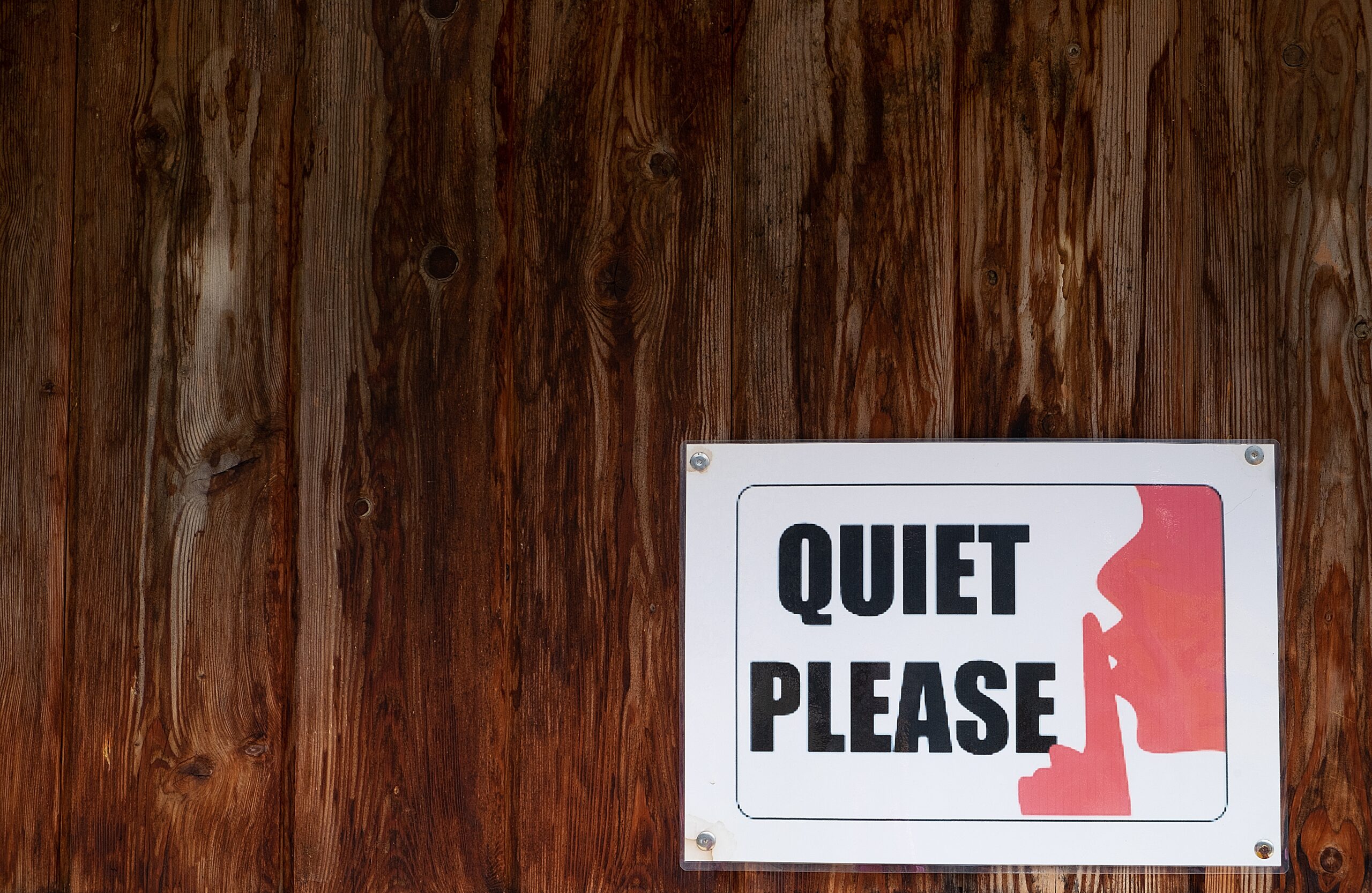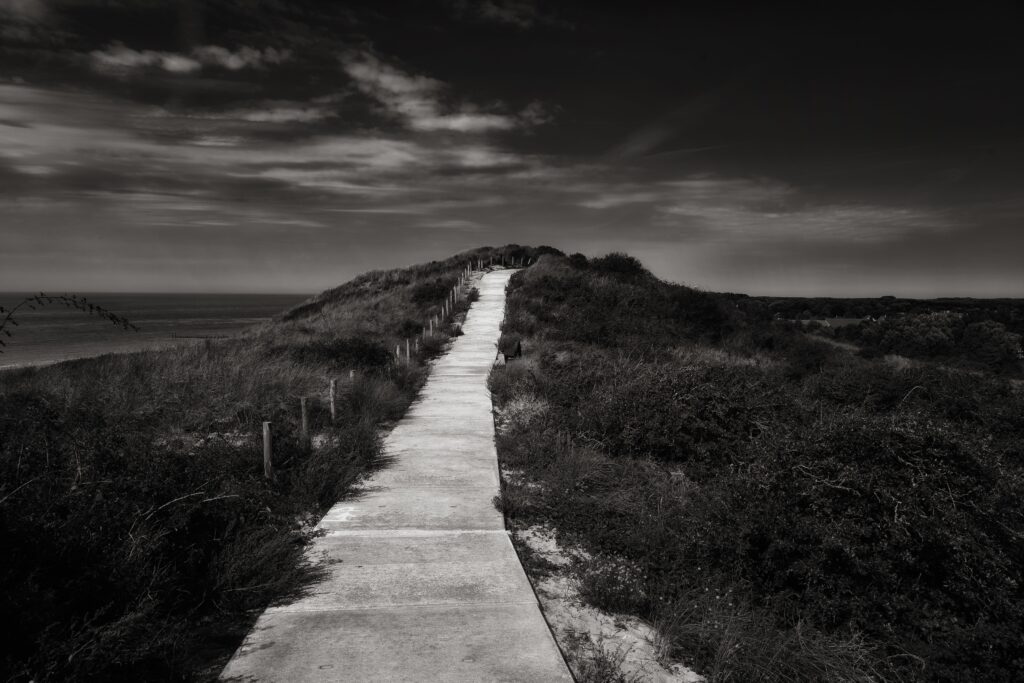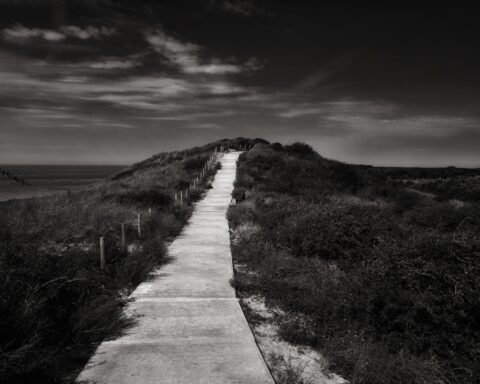After describing how one is moved by love as they begin this journey called the dark night, St. John of the Cross says that there are three parts or phases to this night. He explains that while each phase is called a night, they are really three parts of one larger night. He explains the division, “The first part, the night of the senses, resembles early evening, that time of twilight when things begin to fade from sight. The second part, faith, is completely dark, like midnight. The third part, representing God, is like the very early dawn just before the break of day. To provide further enlightenment about all this, we will discuss each of these causes of night separately.”[1]
In addition to the soul being moved by love to enter upon journeying through this night, one must make deliberate preparations to dispose oneself for the journey. The night, as John describes, has an active and passive component. The active portion of the night is what we can do on our part at the beginning of the journey. A good way I found to understand this active part of the night is by what the Church recommends we do for penitential days and seasons. Just as we deliberately choose what we give up during Lent, the active portion of the night is us deliberately detaching from unhealthy attachments. A side note in the text says that John is specifically referring to the gratification of any appetites that are disordered or inordinate; a longing or craving, an impulse that is directed at anything that is not a moral or spiritual good.[2]
The Catechism says, “The seasons and days of penance in the course of the liturgical year (Lent, and each Friday in memory of the death of the Lord) are intense moments of the Church’s penitential practice. These times are particularly appropriate for spiritual exercises, penitential liturgies, pilgrimages as signs of penance, voluntary self-denial such as fasting and almsgiving, and fraternal sharing (charitable and missionary works).”[3] It is the voluntary self-denial that made me think of the work we can do in preparing ourselves to undergo this night, to receive that sheer grace to enter fully into it. St. John of the Cross explains, “The active way, which will be the subject of the following counsels, comprises what one can do and does by oneself to enter this night.”[4]
John says that to deprive oneself of the gratification of one’s appetites is to have them live in darkness and in a void.[5] John begins to speak of the faculties or external senses and the deprivation they can undergo to enter the darkness and void of the night. He explains, “By depriving itself of its appetites for the delights of hearing, a soul lives in darkness and emptiness in this sense faculty. And by depriving itself of the pleasure of seeing things, it lives in darkness and poverty in the faculty of sight. By denying itself the fragrances pleasing to the sense of smell, a soul abides in emptiness and darkness in this sense faculty. Then too by denying the palate the pleasures of delicious foods, it is also in the void and in darkness in the sense of taste. Finally, by mortifying itself of all the delights and satisfactions of the sense of touch, a soul likewise dwells in darkness and in a void in this faculty. The conclusion is that any individuals who may have denied and rejected the gratification that all things afford them, by mortifying their appetite for them, live as though in the night – in darkness, which is nothing else than a void within them of all things.[6]
Since the things of the world don’t enter the soul, it is the will and appetite of the person that causes the damage when they are set upon these things.[7] The inordinate love for the thing forms an inordinate attachment, an attachment that the person ends up being bound to in one way or another. For example, if there is an inordinate attachment to food, it is not the food that is the problem; it is the attachment that the person has to it, as well as the interior longing to consume an unhealthy amount of it.
John says that it is necessary for a person to have this night and to practice mortification of the appetites because all attachments to created things are darkness in God’s sight. This is because God is pure and simple light; light and darkness, he says, can’t exist together.[8] It is necessary for a person to have this night, or stage of purgation, so that their souls are not clinging to various things that can obscure or hinder their journey to relationship and union with God.
And he said, “Go forth, and stand upon the mount before the LORD.” And behold, the LORD passed by, and a great and strong wind rent the mountains, and broke in pieces the rocks before the LORD, but the LORD was not in the wind; and after the wind an earthquake, but the LORD was not in the earthquake; and after the earthquake a fire, but the LORD was not in the fire; and after the fire a still small voice. And when Eli’jah heard it, he wrapped his face in his mantle and went out and stood at the entrance of the cave. And behold, there came a voice to him, and said, “What are you doing here, Eli’jah?”
1 Kings 19:11-13 RSV
Like Elijah, hearing the Lord in the still and small voice as opposed to the strong wind or the earthquake is the quieting of ourselves by the stilling of the appetites, which makes us more ready to listen to God.
Here are the notes from the talk given in February of 2024 to THE COMMUNITY OF THE HOLY INNOCENTS Secular Order of Discalced Carmelites, Rockford, Illinois. It was on the topic of the connections found between the voluntary penance we choose for Lent and the active part of the dark night that John speaks of. I try not to read from my notes so the actual talk given likely contained examples and content not found here. This is only the first part of the notes for talk given in order to make this more readable. The other notes will be released in a following post.
[1] St. John of the Cross. The Collected Works of St. John of the Cross. ICS Publications. Washington DC 1991. Pg. 121
[2] Ibid. Pg. 118
[3] CCC §1438
[4] St. John of the Cross. The Collected Works of St. John of the Cross. ICS Publications. Washington DC 1991. Pg. 147-48
[5] Ibid. Pg. 121
[6] Ibid. Pg. 122
[7] Ibid. Pg. 122
[8] Ibid. Pg. 123
Discover more from Sanctus Daily
Subscribe to get the latest posts sent to your email.




